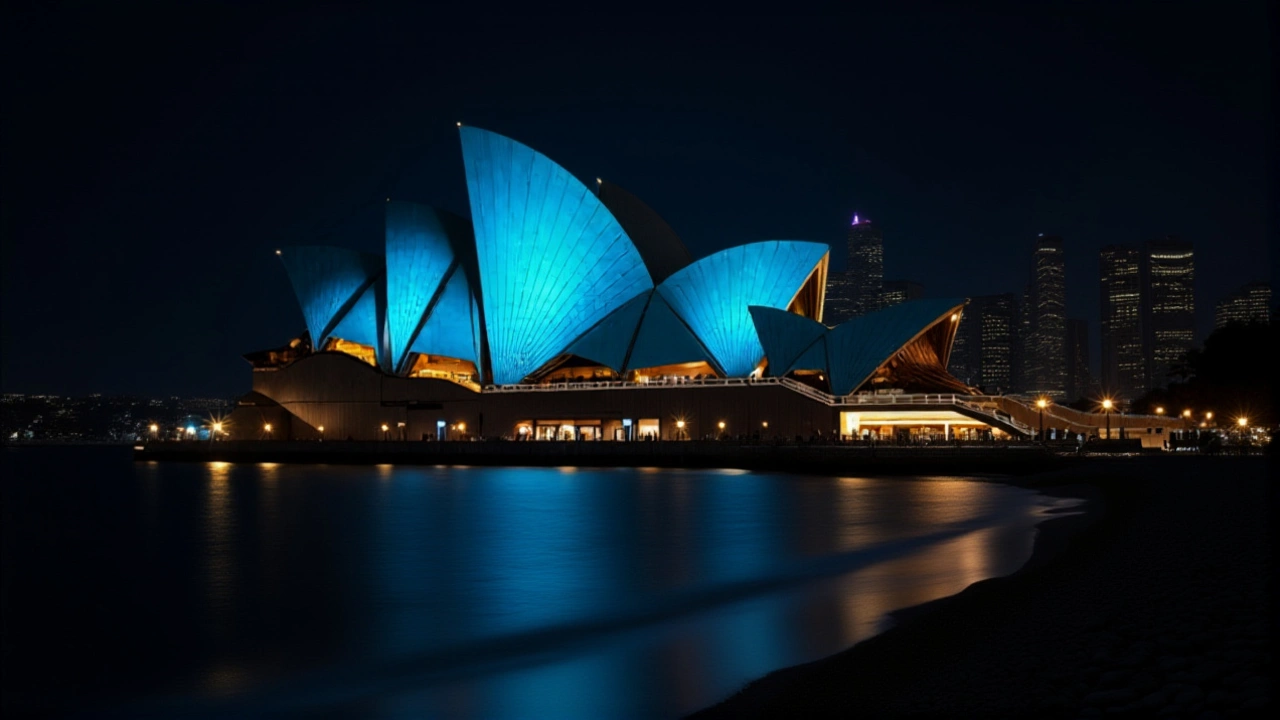Australia has issued urgent travel alerts for its citizens planning trips to Jamaica, Paraguay, El Salvador, Saudi Arabia, Chile, India, Colombia, and Mexico — a sweeping update driven by escalating violence, political chaos, and crumbling public safety systems. The advisory, announced on May 21, 2025, reflects a sharp pivot from previous guidance, with some destinations now carrying far more alarming warnings than international counterparts suggest. Here’s the thing: travelers aren’t just being told to be careful — they’re being told to reconsider whether going at all is worth the risk.
Conflicting Advisories: Who’s Right?
The confusion starts with the data. While Australia’s Department of Foreign Affairs and Trade (DFAT) flagged all eight countries as high-risk, the U.S. State Department’s system — widely used as a global benchmark — paints a different picture. As of April 8, 2025, El Salvador remains at Level 1: Exercise Normal Precautions. Yet, the U.S. Embassy in Jamaica issued a Level 3: Reconsider Travel warning on November 3, 2025, citing crime, health emergencies, and natural disaster threats. Meanwhile, Global Citizen Solutions’ 2025 Caribbean report lists Jamaica at Level 2: Exercise Increased Caution. Why the disconnect? Because advisory levels aren’t just about crime stats — they’re political, bureaucratic, and sometimes contradictory. The U.S. system, updated in 2018, uses four color-coded tiers. Australia, however, doesn’t always follow them. Instead, it synthesizes intelligence from multiple sources — including local embassies, intelligence agencies, and real-time incident reports — to form its own judgment. And right now, that judgment says: Don’t wait for an emergency to act.Jamaica: The Island Under Siege
In Kingston, the capital, gang violence has exploded. Gunfire isn’t just background noise — it’s a daily reality. In the past six months, homicides rose 27%, according to Jamaica’s Ministry of National Security. Tourists are rarely targeted directly, but that’s cold comfort when you’re walking past a barricaded street or hearing sirens at 2 a.m. The U.S. Embassy issued a natural disaster alert on November 3, 2025, and scheduled an emergency evacuation bus from the Consular Agency in Montego Bay for November 4 — a rare move that signals how seriously they view the dual threat of crime and hurricanes. Even the most secure resort zones aren’t immune. A British tourist was robbed at gunpoint in a gated complex near Negril in March, and local police admitted they had no leads. The message from Australian officials is blunt: “If you’re not staying inside a fortified compound 24/7, you’re taking a gamble.”Paraguay’s Quiet Descent
Once praised for its low crime and friendly locals, Paraguay has quietly spiraled. Rural areas like Concepción and San Pedro are now no-go zones for independent travelers. The Ejercito del Pueblo Paraguayo (EPP), a Marxist guerrilla group long thought to be dormant, has returned with a vengeance — targeting buses, farms, and even small towns. Armed robberies have jumped 40% since January 2025. In April, a German couple was kidnapped near the Brazilian border and held for six days before being released after a ransom was paid. Political protests, once peaceful, now turn violent overnight. In Asunción, police used tear gas on demonstrators in March, and a state of emergency was declared in three departments. “It’s not the tourists they want,” said a local tour operator who asked not to be named. “It’s the cars, the phones, the cash. But you don’t get to choose when you become collateral.”
El Salvador: The State of Exception That Never Ended
Here’s the twist: El Salvador has been under a “State of Exception” since March 2022 — a legal override that suspended constitutional rights, including the right to a speedy trial, legal counsel, and protection from arbitrary detention. And it’s still active. As of April 2025, over 62,000 people have been detained under this policy, many without formal charges. The government claims it’s crushed gang activity — homicides are down 80% since 2022 — but foreign nationals are being caught in the dragnet. In December 2024, Salvadoran authorities enacted a “Zero Tolerance” law: any detectable alcohol in your blood while driving is a felony punishable by 2 to 5 years in prison. A Canadian tourist was arrested in San Salvador in February after having one beer at dinner and being pulled over at a checkpoint. He spent 11 days in jail before being released. The tourist police (POLITUR) do patrol major sites, but as the U.S. advisory admits: “Most serious crimes in El Salvador are never solved.”Why This Matters Beyond the Tourist Trail
This isn’t just about vacation plans. Australia’s move reflects a broader global trend: countries once considered safe for Western travelers are becoming high-risk zones due to systemic failures — underfunded police, corrupt institutions, and weak rule of law. The ripple effects are real. Airlines are raising insurance premiums for flights to these destinations. Tour operators are canceling group tours. Local economies that depend on tourism — like Jamaica’s coastal communities — are suffering. And the most vulnerable? The people who live there. When tourists flee, jobs vanish. When police are overwhelmed, communities are left defenseless. This advisory isn’t just a warning — it’s a symptom.
What’s Next?
Australia says it will review these advisories every 60 days. Meanwhile, the U.S. State Department is under pressure to update its ratings — especially for Jamaica, where Level 3 contradicts other international assessments. Experts predict more countries will follow suit. Chile, for example, has seen a 15% spike in tourist-related thefts since early 2025. India’s northern states are facing new security threats linked to regional unrest. And Saudi Arabia? Its tourism boom is drawing millions — but so are reports of arbitrary detentions and sudden crackdowns on foreign visitors. Travelers should check DFAT’s website daily, register their trips, and avoid public transport after dark. And if you’re thinking of booking a trip to any of these places? Ask yourself: What’s the worst that could happen? And are you ready for it?Frequently Asked Questions
Why does Australia’s advisory differ from the U.S. State Department’s for Jamaica?
Australia uses a broader intelligence network, including local embassy reports, crime data from Caribbean police agencies, and real-time incident logs — not just U.S. State Department ratings. While the U.S. rates Jamaica at Level 3 due to crime and natural disaster risks, Australia factored in recent spikes in gang violence, the November 2025 evacuation alert, and rising reports of tourist assaults outside resort zones — leading to a more cautious stance.
Are tourists being specifically targeted in these countries?
Not usually — but that’s the danger. Most crimes are opportunistic: theft, robbery, or being caught in crossfire during gang clashes. In El Salvador, foreigners have been arbitrarily detained under the State of Exception. In Paraguay, kidnappings target anyone with visible wealth. The issue isn’t intent — it’s vulnerability. Tourists often stand out, carry cash or electronics, and may not understand local risks.
What should I do if I’m already in one of these countries?
Register with your embassy immediately. Avoid walking alone after sunset. Use only registered taxis or ride apps with tracking. Keep copies of your passport and insurance. In Jamaica, monitor U.S. Embassy alerts for evacuation notices. In El Salvador, never drink and drive — even one drink can land you in prison. Stay in secure accommodations and avoid political gatherings. If you feel unsafe, leave — don’t wait for an official warning.
Is it safe to travel to these countries for work or business?
Business travel carries higher risk. In India and Colombia, corporate executives have been targeted for extortion. In Saudi Arabia, foreign workers face sudden detention under vague security laws. Most companies now require mandatory security briefings, armed escorts in high-risk zones, and emergency evacuation plans. If your employer hasn’t provided these, reconsider the trip — your safety isn’t worth the contract.
How long will these travel alerts last?
Australia reviews its advisories every 60 days, but historical precedent suggests these warnings may remain for 12–18 months. Similar alerts issued after the 2017 Haiti crisis lasted nearly two years. Until crime rates drop significantly, political stability returns, and institutions regain public trust, these advisories are likely to stay — even if the U.S. downgrades its ratings.
Can I get travel insurance if I go to these countries anyway?
Most policies exclude coverage for destinations under Level 3 or higher advisories. Even if you buy insurance, claims for theft, medical evacuation, or trip cancellation due to safety concerns will likely be denied. Some specialized providers offer high-risk coverage — but they cost 3–5 times more and require pre-approval. Always read the fine print — and assume you’re on your own if disaster strikes.
